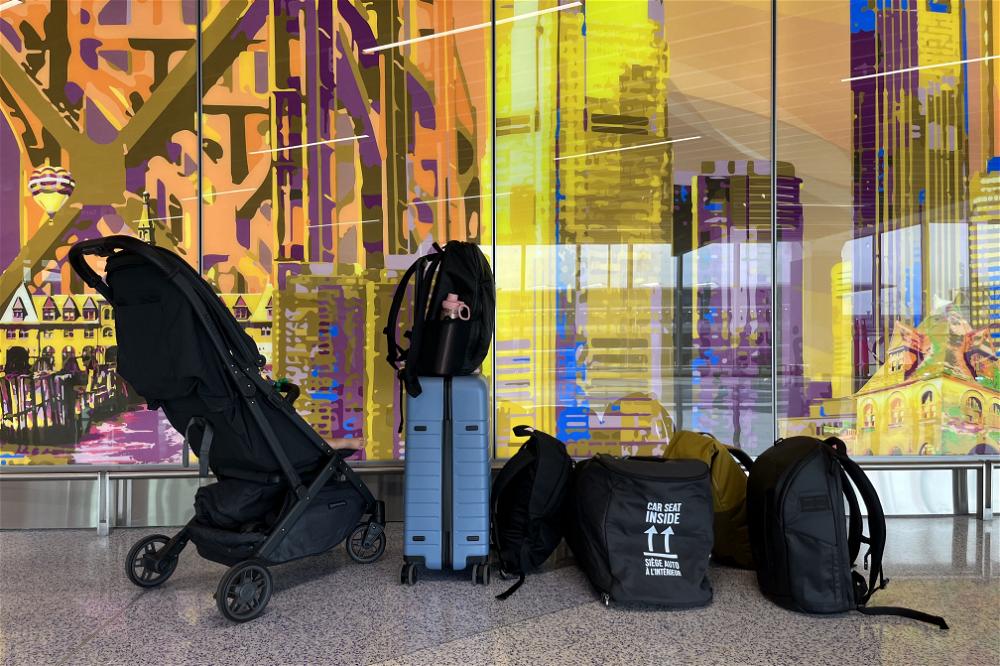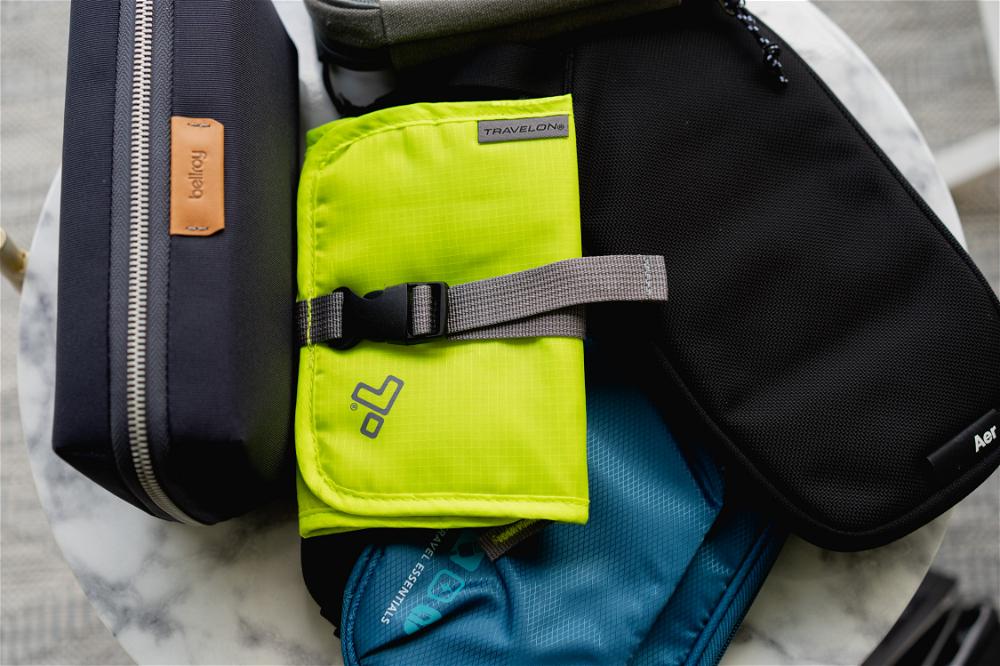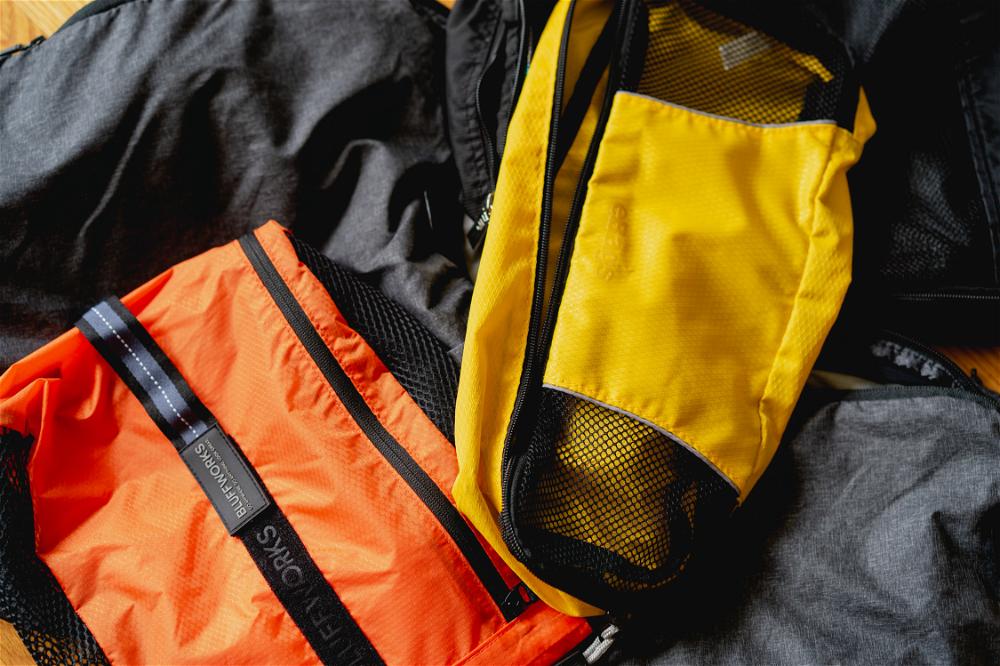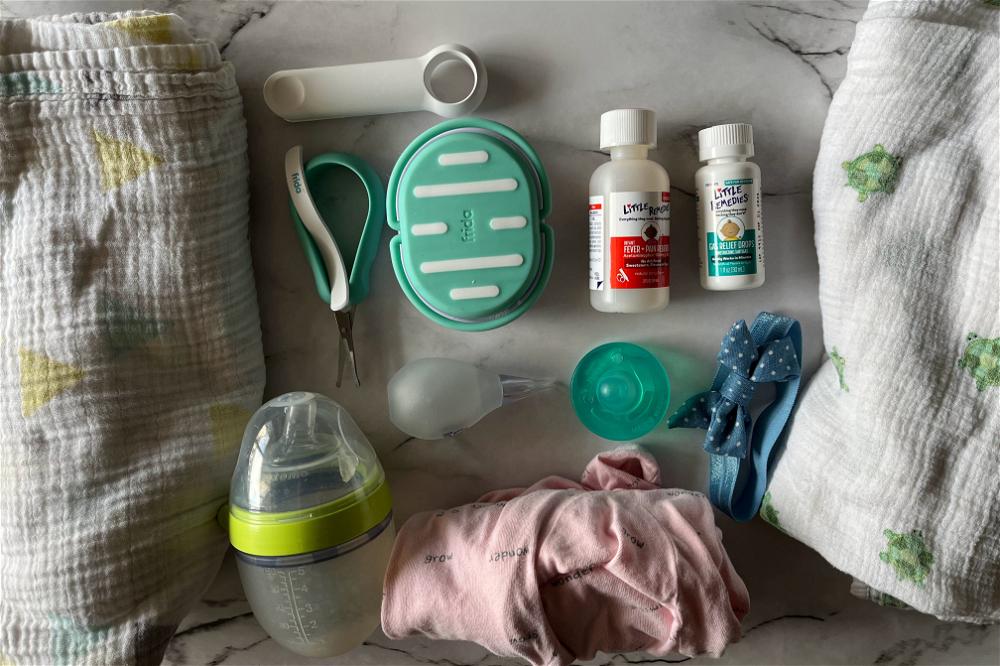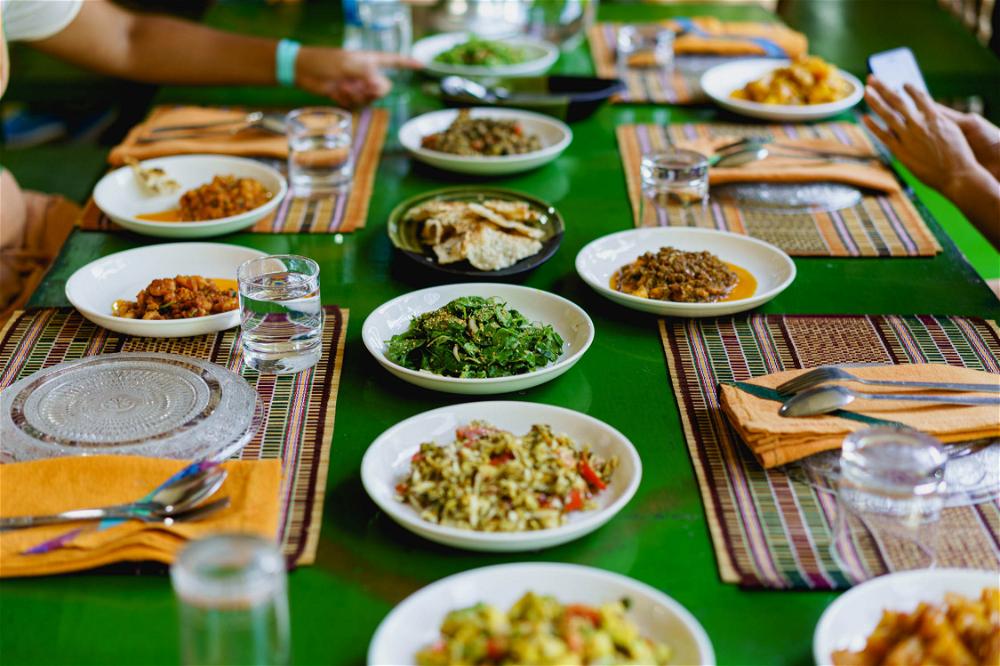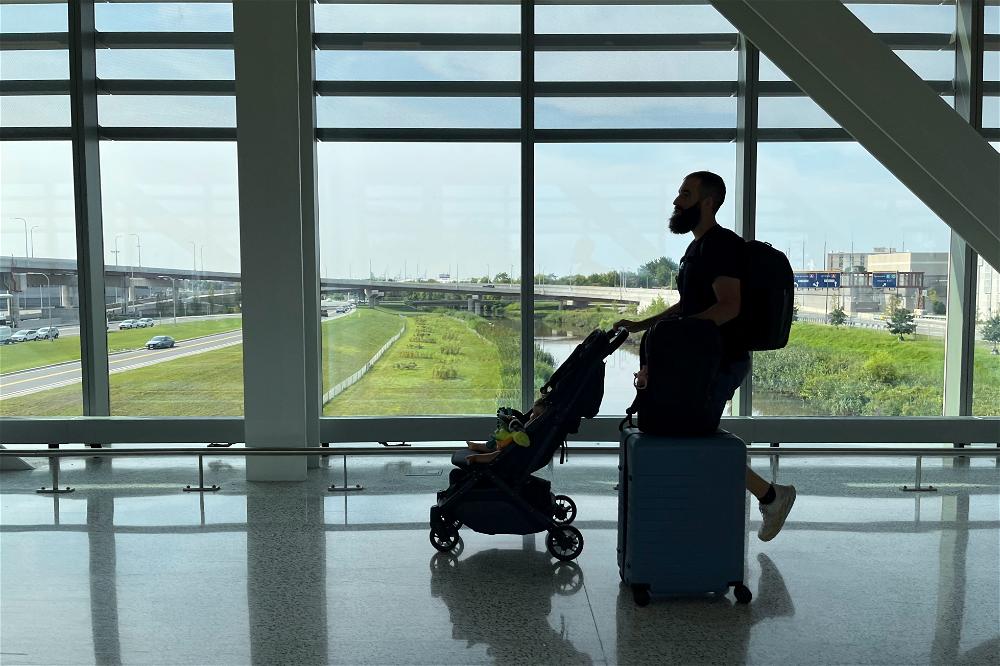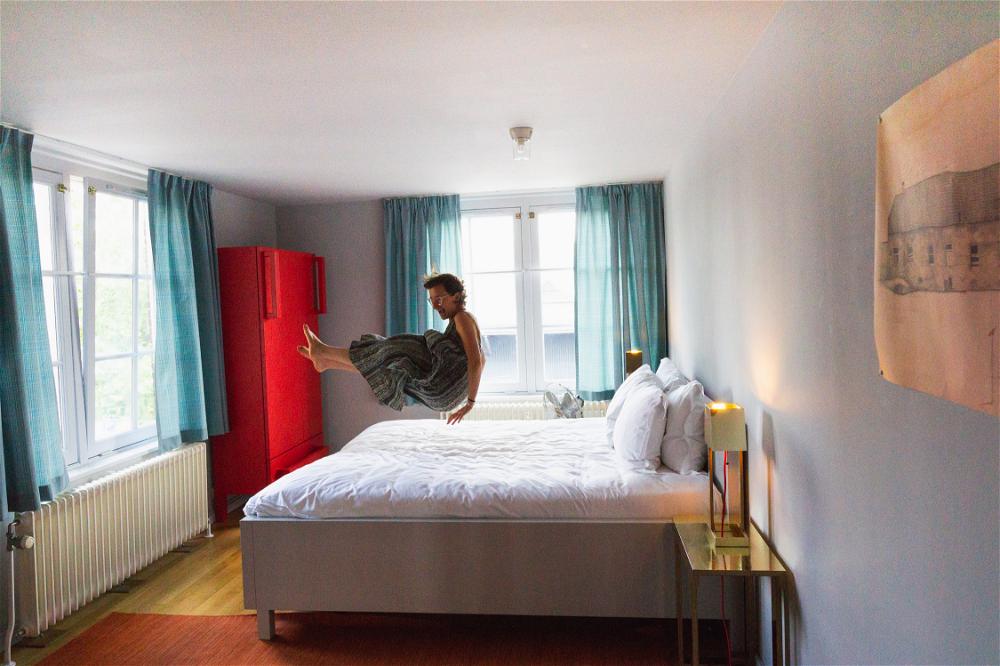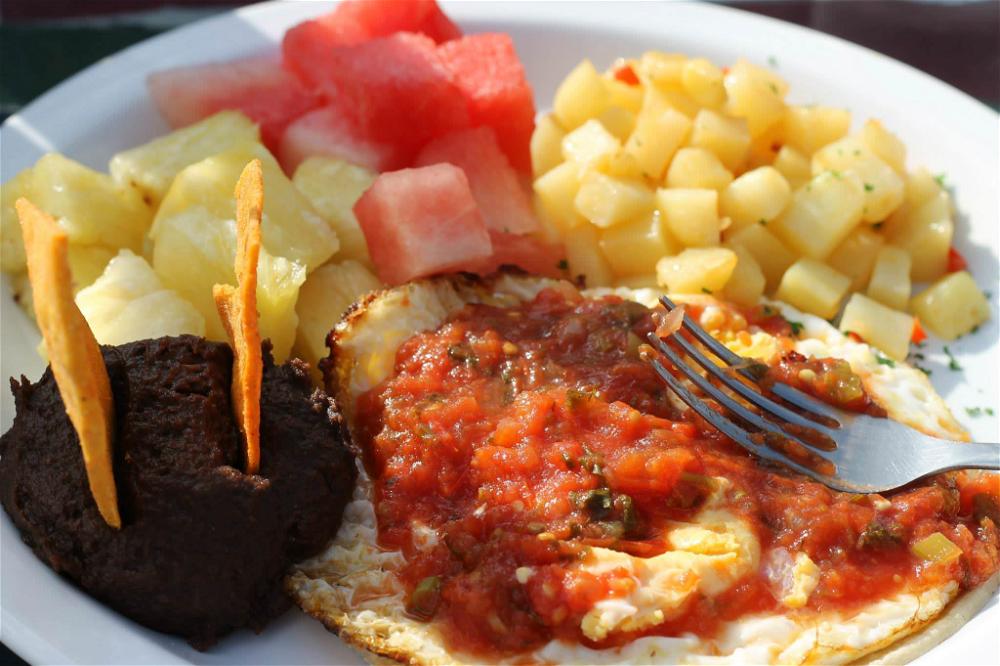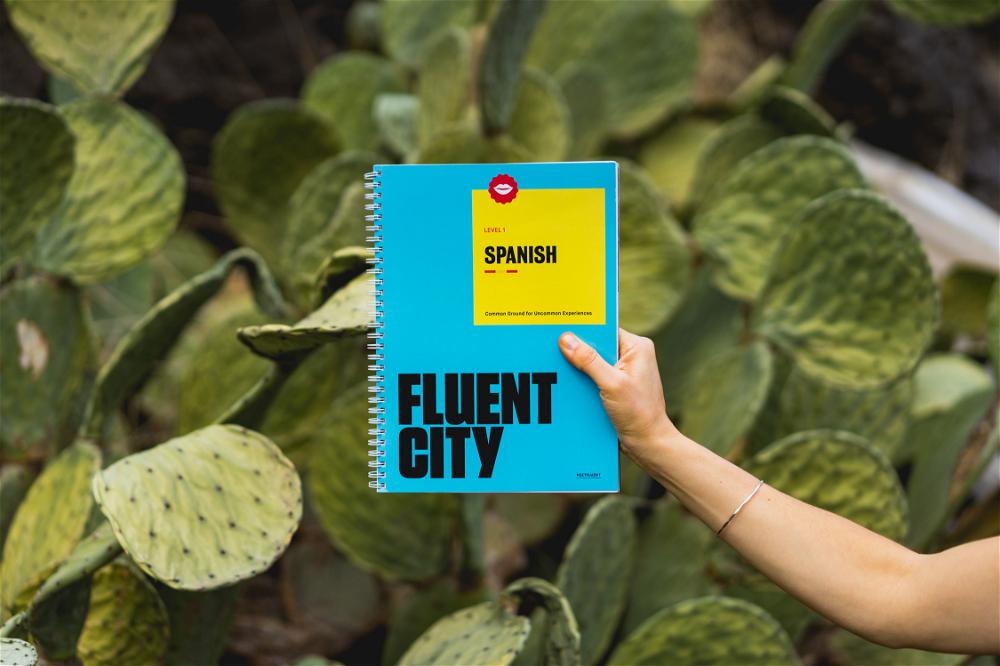9 Minimalist Packing Tips (Smarter Packing and Planning)
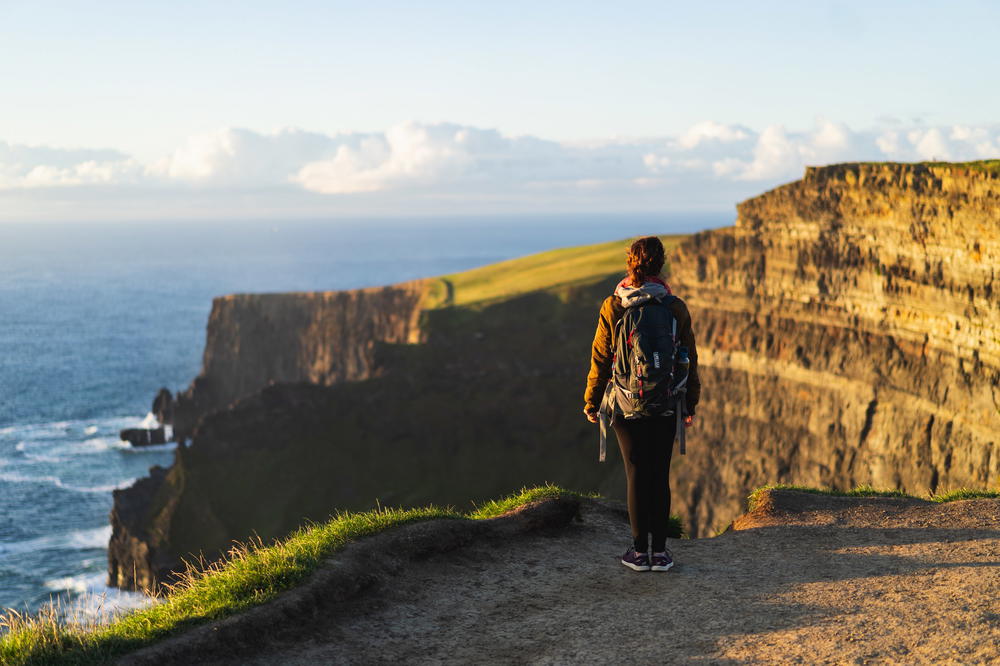
How can you start minimalist travel planning and prepping? Here, we teach you our tips and tricks to pack like a minimalist, bring less stuff and choose versatile travel products.
This article may contain affiliate links. We earn a small commissions when you purchase via those links — and it's free for you. It's only us (Becca & Dan) working on this website, so we value your support! Read our privacy policy and learn more about us.
Table of contents
- Plan your outfits and find versatile clothing
- Limit the amount of shoes that you take
- Only buy “useful” things
- Pack less
- Lose the snack bars, and gain space back in your bag.
- Use the minimalist mindset to maximize your experience.
- Use packing cubes
- Limit your electronics
- You don’t need to do it all when you travel.
Have you ever been at the airport and you see someone carrying an irrational amount of stuff, whether it’s luggage, souvenirs or duty-free goodies? There’s nothing like discovering your own reaction to someone else’s over-indulgence or over-consumption and starting your promise to yourself to never be ‘that person.’
When preparing for travel, we often go into “what if” mode: “What if I lose all my socks?” “What if I run out of shampoo?” “What if I can’t find my favorite brand of deodorant in Nicaragua?”
Chances are that when you travel, something will go wrong. No trip is perfect, but you can pack ‘minimalistically’ to cover all your bases. Once you start packing and traveling as a minimalist, you’ll discover how your stresses are eased, your decisions are fewer and your freedom is enhanced.
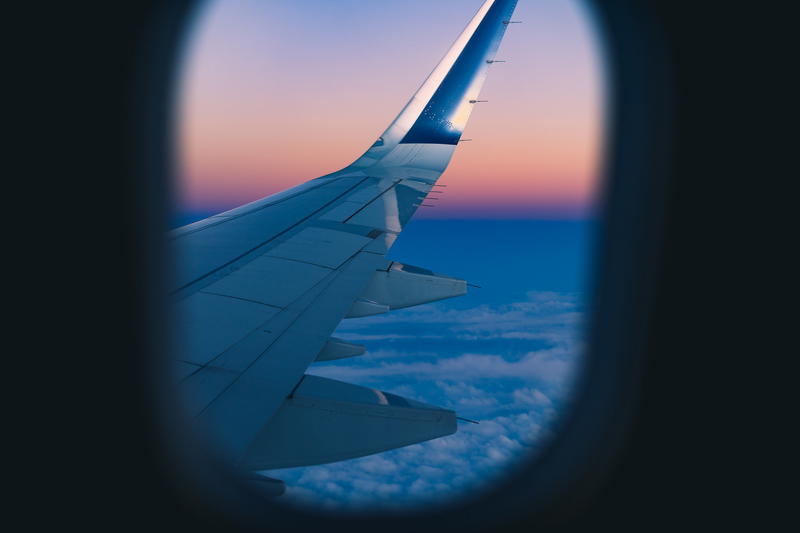
Plan your outfits and find versatile clothing
We’ve traveled long-term for nearly 10 months. We were fortunate to be able to fly back to NJ, where all our ‘stuff’ was living, and switch out some clothes for others depending on the climate of our next destination, but overall, we found out one thing: after our third return home to see family before heading to Asia, we packed way less than when we had first set out for our summer in Europe.
By our seventh month, Dan was carrying a 40L backpack and had chosen to take around seven shirts in total. For our trip to Myanmar (Burma), I brought only three dresses, and washed them when we did laundry every four to five days.
You can do laundry where ever you go. Pack less and do laundry more frequently!
With selecting a small sample of clothes (let’s face it - everyone only wears 20% of their entire wardrobe on average anyway) and doing laundry every few days, we had fewer choices to make between wearing this-or-that.
Most of Dan’s shirts are black, so they always match what he wears on the bottom, and he has one sweater that matches all his black tops.
If we’re going somewhere cold, like Chicago, a single pair of warm jeans like the DUER Fireside Winter Jeans will do, along with a packable parka. When we travel between cities, we’ll wear our bulkiest items to save space in our bags.
The best part about these minimalist clothes choices were that choosing any one shirt or dress was as good as choosing any other, and the decisions of ‘what to wear today’ were quick and simple.
Limit the amount of shoes that you take
There are a few routes to take when choosing something like travel shoes. You can choose to have your shoes be versatile and multi-use, or determine your needs, and choose very strategically for something that has one use and is very good at serving its purpose.
In this way, Dan and I choose something like shoes to serve specific purposes.
For Dan, it’s gym shoes (flat-bottomed athletic shoes like these Nike Metcon training shoes, which Nike sent him to test out), running shoes (Saucony for men) and everyday Birkenstocks (unisex). For me, it’s everyday walking (Birkenstocks), running (Nike Women’s React Infinity sneakers), looking decent (black ballet flats) and beach/shower (lightweight flip flops).
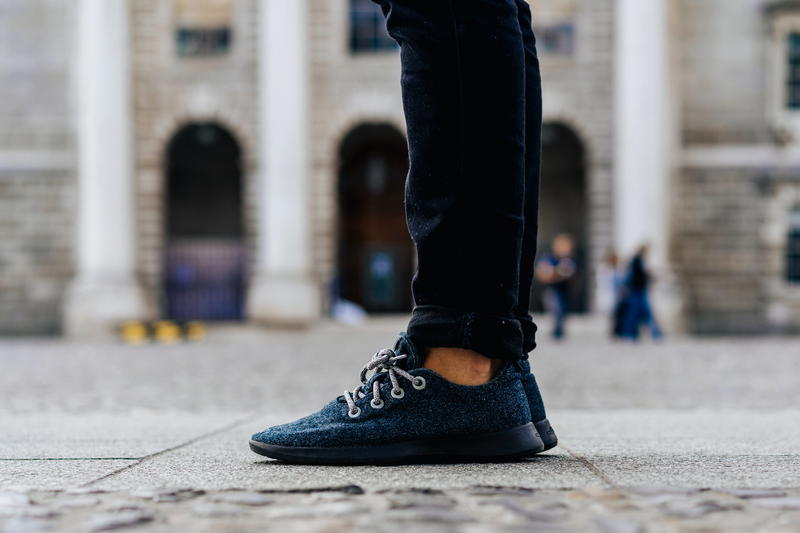
Only buy “useful” things
We don’t buy souvenirs because we like our memories to exist in our minds. The things we’ve bought when we’ve traveled are items that we can count on one hand.
In Vietnam, we bought a cutting board, two bowl-sized Tupperwares, a wooden rice paddle, two metal spoons and five sets of chopsticks as a pack. For other useful things, Becca bought a raincoat, Dan got some new Bluetooth headphones, we got some nail files and Becca got plastic sandals for rainy days.
We should mention that the only reason we needed to buy anything in the first place is because the Airbnb that we were staying didn’t have those kitchen items that we bought. Everything else improved the quality of live (like headphones and sandals) since we didn’t have those items to begin with.
Thinking back, we could have definitely gone on the trip with our own travel snack containers, like these containers from ECOlunchbox that have stainless steel builds and leak-proof silicone lids.
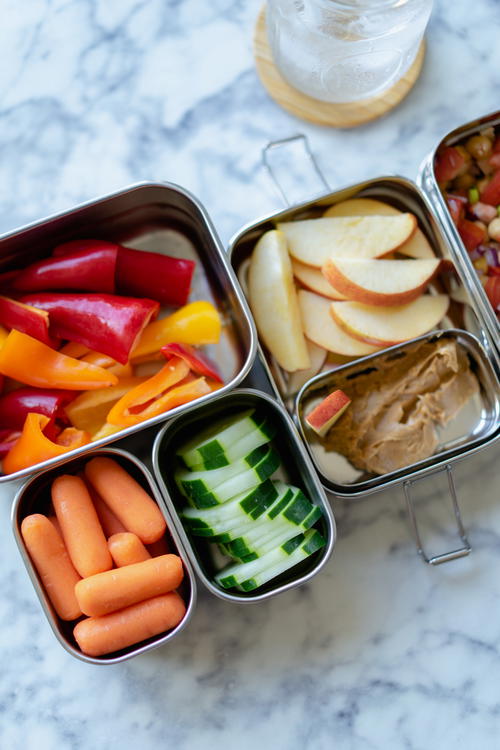
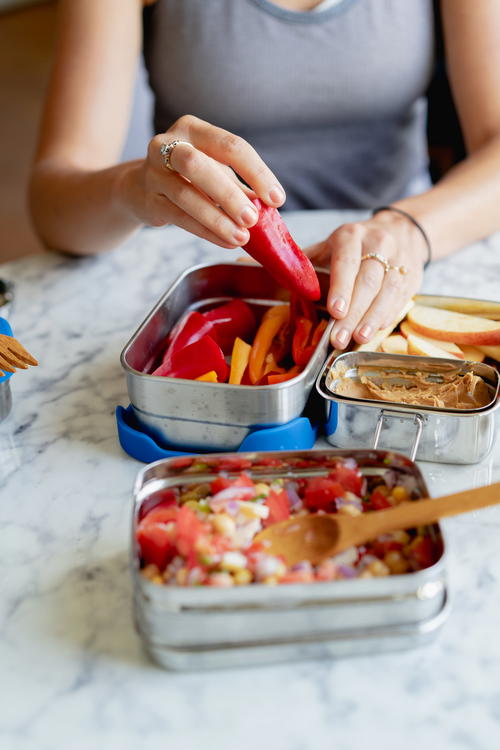
In Taiwan, Becca bought a wallet when hers broke. We came home with extra local currency as keepsakes and with all our photos backed up in Google photos and our photo backup strategies.
If you only buy useful things during trips, those same things will keep serving you, whereas ‘souvenirs’ sit in collections.
Pack less
After four weeks in Vietnam, I realized I had a tank top I hadn’t worn at all. While it took up the size of only a little square in my packing cube, I realized that I didn’t need it, if I wasn’t wearing it.
To learn more about the best packing cubes, check out our guide!
Revisit everything you packed after a week
If you are traveling long term and revisit everything in your bag, assess after one week and then after two weeks if you’ve touched and utilized everything taking up space in your luggage.
If not, is it time to donate it to the hostel you’re staying at, or to a local who’s more in need of it than you are?
Lose the snack bars, and gain space back in your bag.
On our trip to Europe, we took lots of healthy vegetarian snacks like protein bars and started off with a whole heap of them, in case of this, in case of that, in case of a bus ride, etc.
By our seventh to ninth months, we traveled with zero types of backup foods, and instead, bought local snacks as needed.
Given, Vietnamese stale banana chips are not half as delicious nor nutritious as a GoMacro bar (YUM), but after we consumed the banana chips during a bus ride to Sapa, they no longer took up space in our luggage nor in our Airbnb.
Use the minimalist mindset to maximize your experience.
In the same way that over-packing can weigh you down, over-planning can make you cringe. It goes without saying that plans are meant to be disrupted, broken or re-planned, so while a planning skeleton where to stay and when to be there is good, a minute-by-minute plan is excessive and stressful.
Plan the essentials, especially during high season, like bus tickets, flights, train rides and hotels, and leave other activities up to chance unless they require pre-booking.
If you’re flying in basic economy class, then you’ll have no choice but to pack light and use only a personal item as your luggage!
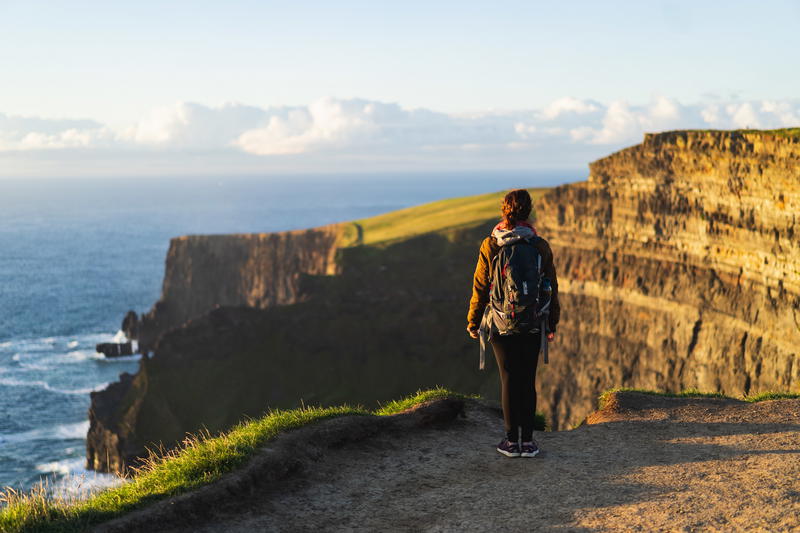
Use packing cubes
We love our packing cubes and they’ve been essential to us and how we travel and pack. The packing cubes help save space in your luggage and can maximize the space that you have to work with.
You can learn more about packing cubes in our round up of the best packing cubes for travel.
Limit your electronics
It’s easy to want to bring your laptop, an iPad, two phones, a Kindle, a camera, spare batteries and charging cables for everything. Well, this adds up. On shorter trips when we’ve been trying to capture specific content, this was us and we brought way too many cameras, lenses and accessories.
For the average person, you’re usually traveling to enjoy your destination. The conveniences that you know at home can likely be left behind and will be waiting for you when you return!
You don’t need to do it all when you travel.
Minimalism can mean minimizing your travel appetite. To enjoy a place or a country, you can enjoy a region and still feel good about the trip you took.
A case in point is when I went to Guatemala with a friend in 2015. I wanted to score all the major landmarks “in case I never got back to Guatemala.”
During a trip of nine days, we spent four of them on long-haul bus rides of eight to 14 hours. This means we only got to experience Guatemala every other day of the trip! Nonsense!
We skipped some sights in some regions. We didn’t have time to see all the cafe culture in Antigua and we skipped Xela, in order to get out to Lanquin and Flores, which were all in different corners of a country where roads don’t allow buses to go all too fast.
Had we gone with a more minimalist approach, like exploring a region more heavily, we could have enjoyed more of Guatemala and less of its buses.
You may also like
-
![]()
Essential Packing Checklist for an International Trip with a Toddler
Ready for an international travel packing list for a toddler? Use this packing checklist for toddler essentials: what to pack, for overseas flights and long trips abroad.
-
![Small pile of tech organizer bags]()
Best Tech Organizer Bags for Your Cables and Electronics
Keep all of your tech products organized by finding the perfect small pouch and bag. Let's explore some options for storing the various cords, cables and small electronics you bring with you while traveling.
-
![A flatlay image of a bunch of packing cubes.]()
Best Packing Cubes for Travel in 2024 (Pack Smarter)
Packing cubes help keep your clothes organized and compressed. They're essential for traveling, but with so many options, how do you find the best packing cube? Let's find out!
-
![A list of baby items laid out on a marble table.]()
Road Trip with Baby: Essential Travel Packing List & Tips
How do you take a road trip with a baby for the first time? Check out my essential travel packing list for everything your infant needs during a trip.
-
![]()
Essential Packing Checklist for an International Trip with a Toddler
Ready for an international travel packing list for a toddler? Use this packing checklist for toddler essentials: what to pack, for overseas flights and long trips abroad.
-
![A group of people sitting at a table.]()
24 Tips for Traveling as a Vegetarian (and Vegan)
Let’s talk about how to eat vegetarian or vegan while traveling! Here are our best vegetarian and vegan tips and tricks for beginners, along with plant-based travel snacks.
-
![]()
How to Get Global Entry for Your Child: Guide for Parents
Figuring out if your baby or child needs Global Entry? Here are my top tips for getting Global Entry for a kid or minor, from how to apply to what to expect.
-
![A person jumping on a bed at The Lloyd Hotel in Amsterdam, The Netherlands.]()
Booking.com vs Airbnb vs Hostelworld (Accommodation Booking Guide)
Travel accommodations are often a challenge to book. How can you choose a place to stay in a new city? We talk about our favorite ways to book where to stay.
-
![Typical Guatemalan breakfast of black beans, a fried egg on a tortilla, fried potatoes and watermelon with pineapple on a white plate.]()
16 Best Places to Travel as a Vegetarian (or Vegan)
Where are the best places to travel as a vegetarian or vegan? Discover the countries that are most friendly to plant-based diets for vegetarian travelers.
-
![A person holding a notebook with the words fluent city in front of a cactus.]()
How to Learn Languages and Helpful Phrases for Traveling
Did you ever realize that traveling gets a little bit easier when you know a few words in the language of the country where you're going? We've created a list for a few surprise ways to learn languages based on what works best for us.
